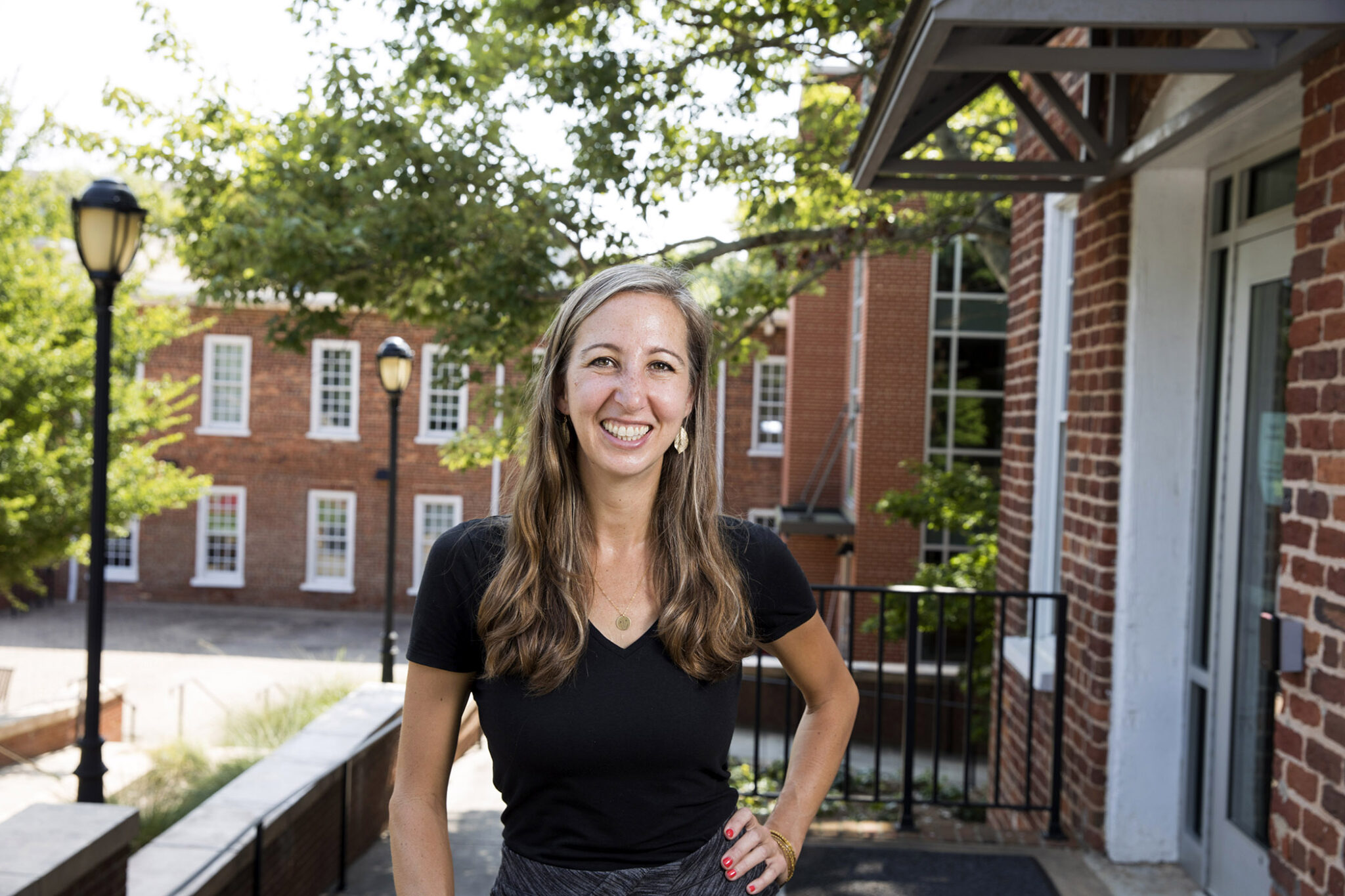When she’s not “Pastor Maggie” at Mercy Community Church in Atlanta, Maggie Leonard is a graduate student at the University of Georgia pursuing joint master’s degrees in public health and social work.
Leonard, an ordained minister who attended seminary at Columbia Theological Seminary, decided to go back to school to make an even bigger difference in the lives of those she serves.
For eight years, she’s served as a co-pastor for the non-denominational church, whose congregation was composed of many people who were chronically homeless. The church offers services including meals and coffee for the homeless, a clothing closet, foot clinic, art classes, writing classes, and even a homeless newspaper. And while she was trained in theology and community service, she wanted to be better trained to offer care and support for illness and mental illness.
“I learned a lot, trial and error over the years, about how to engage folks when they were in the middle of psychosis, or manic or depressive, or have anger management issues. I never had any formal training in that,” she said. “Pastors are very aware that we are not therapists—that we don’t have that kind of education. I always wanted more tools for how I could care and support folks.”
But what if she was trained in counseling? What if she knew more about grant writing and program writing? “Eventually, [continuing my education] it just seemed like the right next step,” she said.
Dual degree
She enrolled in UGA’s Master of Social Work and Master of Public Health dual degree program, which uses biopsychosocial and epidemiological perspectives to address critical health issues at the local, state, national, and international levels. For her, it was just one more semester to get both degrees rather than choose one degree.
At UGA, she’s done research projects that have drawn on her experience. For the dean of the School of Social Work, she’s helped with research on programs for helping those experiencing homelessness and reducing inmate recidivism. She is currently helping co-write a textbook chapter on policies affecting individuals with mental illness while incarcerated. In public health, she’s worked on projects on gun violence as well as clergy members’ training, self-efficacy, and experience in preventing and intervening in instances of domestic violence —that thanks to her clergy connections, she quickly got more than 200 responses to her needs assessment.
This summer, she interned with Solidarity Support, a new program created by the School of Social Work in response to the pandemic. The program offers support groups to parents of children with special needs. The goal was to get the parents and children the resources they needed. Leonard led webinars based on cognitive behavioral therapy. Sessions included “Exploring Stress and Anxiety,” “What Does it Mean to be Resilient,” “What it Means to be Connected to Community” and “Stress Reduction.” In her fifth class, the group had a break-through when Leonard led a Loving Kindness meditation.
“You start off by connecting with your own goodness,” she said. “You look at yourself through the eyes of someone who loves you—a friend, a family member. And you sit with that loving gaze on yourself.”
May I be filled with loving kindness
May I be held in loving kindness
May I accept myself just as I am.
“All the women in the group were teary-eyed—in talking about how they needed that reminder [not to be too hard on themselves],” Leonard said. “Being a parent during these times is really stressful.”
One of Leonard’s personal philosophies is that “who we are is defined on our best day, not our worst day. We all have something to offer the world and we all need a little bit of help.”
Her calling
Leonard got her start in the ministry while in college at the University of North Carolina at Chapel Hill. There, she was very active in the Presbyterian Campus Ministry and was inspired by the campus minister’s social justice work. “I saw ways in which faith could be lived out.”
Her service has always been focused on working with vulnerable populations. In addition to working with those experiencing homelessness, she’s served as a chaplain in a women’s prison and Children’s Hospital of Atlanta. Now, she’s interning at Grady Health System’s new Trauma Recovery Center.
Throughout her service, she says her larger goal and calling is helping people who have been traumatized. “I want to help people process the trauma,” she said, “to have the ability to process the emotions therapeutically.”
“We hold in our bodies things we’ve experienced, which is why I love how yoga can be used to release that tension that we hold from continued stress,” she said.
Leonard began practicing yoga years ago. She eventually became a yoga teacher as one of her side jobs to make ends meet.
“I’ve always worked multiple jobs and try and be present where I feel I was being called and where help was really needed,” she said.
She became trained in trauma-sensitive yoga and teaches yoga at church, prisons, juvenile detention centers, juvenile courthouses and with nonprofits working with sex trafficking.
After she graduates in December, the next step is to become a licensed social worker, which requires taking an exam and offering therapy under supervision of a fully licensed therapist for three years. With her degrees and additional knowledge, she hopes she can have an integrated approach to helping individuals.
“My mother always said I had a very strong sense of right and wrong—that I thought should be done a particular way,” she said. “I want to get things right.”
– Sara Freeland
Read the original feature article at UGA Today.
Posted on November 30, 2020.







